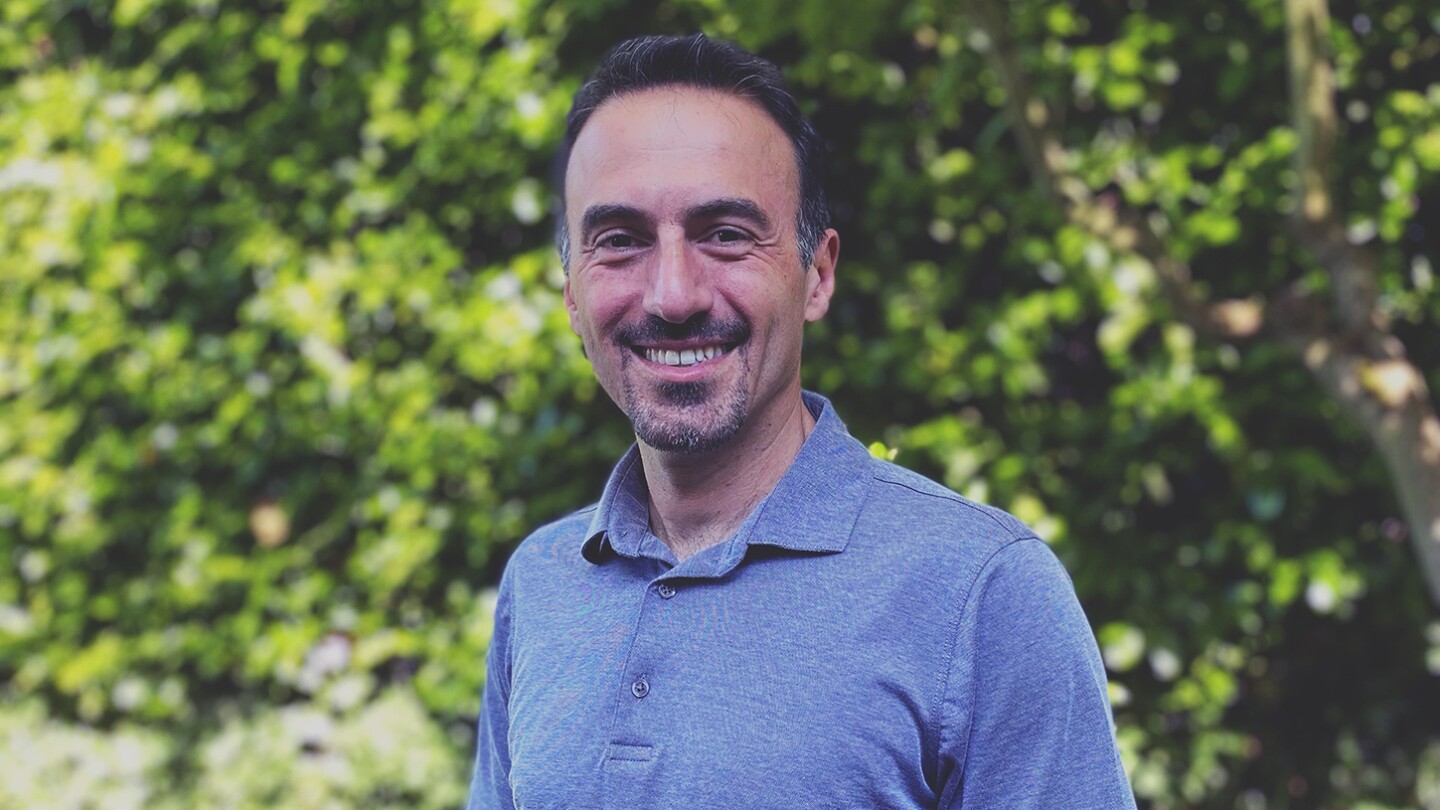Alp Muharremoglu traces his enthusiasm for teaching to his teens, when he tutored younger schoolmates in his hometown of Istanbul. That set him on path to an accomplished career as a university professor in the United States. More recently, he switched gears to become a senior principal scientist within Amazon’s Supply Chain Optimization Technologies (SCOT) organization — but he continues to be a mentor for many of his colleagues.
As a young tutor, Muharremoglu taught whatever topics students needed help with, but he was especially interested in mathematics — an interest that would inform his career. He knew he wanted to study industrial engineering, saying it was a major that would enable him to use math to help solve real-world problems. He applied and was accepted to Bogazici University when an unexpected letter changed his plans.
That year, the government established the Turkish Ministry of Education Scholarship, a program that provided funds to outstanding students to allow them to study abroad. Students were selected based on their national university entrance exam results — Muharremoglu was one of the selected few. Through that program, Muharremoglu eventually applied to the University of Michigan’s Industrial and Operations Engineering program.
That combination of solving real problems with sophisticated mathematical machinery was appealing to me.
“It was a great opportunity to be able to come and learn from some of the top people in the field, as well as to learn a new culture in a new country. It was definitely exciting,” he said.
While at UM, he advanced his interest in math via operations research classes.
“They involve a very deep theoretical body of mathematical knowledge,” he observed. “But that knowledge is not only for the sake of science, we use it to solve real problems,” he said. “That combination of solving real problems with sophisticated mathematical machinery was appealing to me.”
So appealing that Muharremoglu continued his education at the Operations Research Center at the Massachusetts Institute of Technology (MIT). For his master’s degree program, he developed a project to optimize the sequencing of arriving and departing aircraft on a single runway. Many of that project’s themes — for example, the challenges of efficient utilization of space and operational resources — resonated strongly with him.
“I always knew that my main interest was in supply chain optimization,” he said. “For my PhD at MIT, I pivoted to that and looked into a new method for analyzing multi-echelon inventory systems,” he said.
The traditional approach to solving these problems, according to Muharremoglu, was to break them down into discrete stages. After finding the solution for one stage, you would move on to the next, and so on.
“Instead, my PhD dissertation proposed to decompose the solution into the single units of the product that go through the supply chain. It’s a different way of looking at the same problem, which makes certain results easier to derive than the classical approach,” he explained.
Becoming a professor
After his PhD, Muharremoglu accepted a role as an assistant professor at the Decision, Risk, and Operations Division at Columbia Business School. There, he taught quantitative modeling classes to MBA students. Because of those students’ diverse interests, Muharremoglu incorporated teaching examples from different disciplines such as finance and marketing.
[These students aren't] there just to get grades and a diploma, they actually challenge you about how that is going to be useful for them in real life, so that was very motivating for me.
“When you're teaching in an MBA program, the backgrounds are so diverse. In the same classroom you may have somebody with an undergrad in art history, as well as somebody who has a PhD in chemical engineering,” he noted.
“Also, the diverse backgrounds lead to interesting discussions in the classroom. These students have about five years of work experience. They're not there just to get grades and a diploma, they actually challenge you about how that is going to be useful for them in real life, so that was very motivating for me,” Muharremoglu said.
He taught at Columbia University for nine years, followed by another six as an associate professor at the University of Texas at Dallas’s Naveen Jindal School of Management. There he continued his research on supply chain and inventory optimization — until he attended an Amazon event.
In 2016 Muharremoglu attended Amazon’s Supply Chain Optimization Faculty Summit. Amazon invited leading academics from across the country to discuss operations research. He also had former colleagues and students working at Amazon at that time, including Salal Humair, now a SCOT vice president and distinguished scientist, who had been an MIT classmate. While discussing Amazon’s unique supply chain optimization challenges, someone asked Muharremoglu if he’d be interested in joining the company.
It's a fascinating space. And while it's very complex, making it necessary to make certain approximations, the culture of the company is such that it's all very much based on rigorous scientific research.
At first, he thought it would be an interesting experience and, if it didn’t work out, he could return to academia after a year. But once he started in September 2017, he realized he had found the next chapter of his career.
“Within a few months of me joining, something that I had a hand in — a project that aimed to reduce the variability of purchase orders — had been implemented and we could see the results, so that was pretty rewarding.”
He soon developed a new appreciation for engineering and data challenges he had sometimes glossed over in academia.
“It's not only the mathematical problem at hand. You may want a certain set of data for your model, but is that data available? If it’s not, where do you get it from? How do you form the data pipelines to get that data from point A to point B?” Muharremoglu asked. “It's a fascinating space. And while it's very complex, making it necessary to make certain approximations, the culture of the company is such that it's all very much based on rigorous scientific research.”
Developing FLOW
One of those complex challenges entails Amazon’s interactions with vendors. When Muharremoglu joined Amazon, the procurement process was periodic and timed to coincide with demand, or just-in-time purchasing.
That can be challenging for vendors, because it may be hard to anticipate Amazon’s demand and respond quickly. In response, Muharremoglu and colleagues developed a system called Forward Looking Order Workflow (FLOW). With FLOW, some portion of the orders are placed ahead of time based on forecasted demand. Those orders are complemented with just-in-time purchases to achieve a better balance for vendors.
Muharremoglu and colleagues also addressed the challenge of striking a balance between the two approaches.
“We built a model that optimizes that trade-off between the portion of demand we should buy in advance and the portion we should leave to top-off ordering,” he said.
That strategy has been successful, increasing vendor confirmation rates for orders made in advance of demand.
Muharremoglu is thankful for his years in academia and believes they prepared him well for the challenges he faces at Amazon.
“The academic background gave me the foundations to be able to contribute,” he said.
Interacting with students from different backgrounds enhanced his communication skills, which has contributed to his success in his current role. He notes that the most successful projects are the ones where the whole team is engaged from the beginning.
“If scientists, product managers, and engineers are all working together, it usually leads to a more successful outcome,” he said. “The teaching experience is has made it easier for me to communicate with these different stakeholders, as well as to effectively present project ideas and updates to leadership.”





















